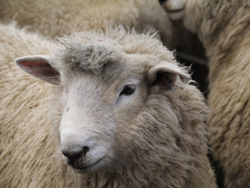Solving the genetics of nematode resistance in sheep
The EC-funded GENESHEEPSAFETY went beyond the traditional animal husbandry techniques to improve the quality of products from the sheep food chain. Project partners sought ways to genetically enhance specific breeds by selecting those individuals with the 'favourable' genetic profile (genotype). The genetic characteristics that researchers looked for affected a variety of traits ranging from milk production to infection resistance. More specifically, part of the project consortium focused on the innate trait that some sheep appear to demonstrate, namely resistance to nematode infection. The nematode parasitic worm can have deleterious effects on the animal host with further implications on the resultant food products and their suitability for consumption. Project partner, INRA studied members of the Sarda and Lacaune families in Sardinia. Following specific indicators, researchers managed to discern specific linkages between genetic loci on the sheep genome and resistance to nematode infections. These loci termed quantitative trait loci (QTL) are considered to play a role in the animal's ability to resist infection from nematode worms. Further research into this area can yield extremely valuable results for application in the field of animal breeding and the food industry in general.







